Information Visualization, Second Edition: Perception for Design (The Morgan Kaufmann Series in Interactive Technologies)
4.6
بر اساس نظر کاربران

شما میتونید سوالاتتون در باره کتاب رو از هوش مصنوعیش بعد از ورود بپرسید
هر دانلود یا پرسش از هوش مصنوعی 2 امتیاز لازم دارد، برای بدست آوردن امتیاز رایگان، به صفحه ی راهنمای امتیازات سر بزنید و یک سری کار ارزشمند انجام بدینکتاب های مرتبط:
معرفی کتاب "Information Visualization, Second Edition: Perception for Design"
کتاب "Information Visualization, Second Edition: Perception for Design" یکی از منابع مهم و اساسی در زمینه طراحی دادهها و تعامل کاربر با دادههای تصویری است. این کتاب توسط کالین ور (Colin Ware) نوشته شده است و نسخه دوم آن به طور خاص بهبودهای زیادی در مفاهیم کلیدی و چگونگی درک انسان از دیتاهای تصویری ایجاد کرده است. این منبع، مسیری روشن برای طراحان و محققانی فراهم میکند که قصد دارند با استفاده از ابزارهای طراحی و روانشناسی درک، بهترین نتایج ممکن را از دادهها به دست آورند.
خلاصهای جامع از کتاب
این کتاب بر این ایده استوار است که درک و شناخت انسان نقشی اساسی در طراحی اطلاعات ایفا میکند. کالین ور در این اثر از دانش روانشناسی شناختی، اصول زیباشناسی و تحلیل دادهها بهره گرفته است تا یک دیدگاه جامع درباره چگونگی نمایش اطلاعات از طریق ابزارهای تصویری ارائه دهد.
کتاب به سه بخش اصلی تقسیم شده است:
- درک اصول بینایی انسان (Visual Perception): این بخش به چگونگی عملکرد چشم و مغز در تعامل با تصاویر میپردازد.
- طراحی برای دریافت بهتر دیتا: که در آن نویسنده نحوه استفاده از جنبههای طراحی مانند رنگ، جریان دیداری و ترکیببندی را توضیح میدهد.
- کشف الگوها در دادهها: بخشی که ابزارهای پیشرفته علم داده و تکنیکهای شناسایی الگو را پوشش میدهد.
اثر حاضر، به طور خاص برای طراحان رابط کاربری (UI)، دانشمندان داده، محققان تعامل کامپیوتر-انسان (HCI) و افرادی که با اطلاعات پیچیده و گسترده کار میکنند، مفید است.
نکات کلیدی این کتاب
این اثر شامل نکات بینالمللی و اصول طراحی قابل اجرا میباشد. به چند مورد کلیدی اشاره میکنیم:
- درک اینکه مغز چگونه دادهها و تصاویر را پردازش میکند تا از آن نکاتی آموزنده کسب کند.
- اهمیت استفاده از رنگ، کنتراست و فضاها در طراحی اطلاعات.
- چگونگی تشویق توجه بینندهها به سمت نقاط مهم داده.
- توضیح اهمیت تناسب دادهها در مقیاسها.
جملات معروف از کتاب
"Visualization is the human cognitive amplifier. To design effective visualization systems, we need to understand how perception and cognition work."
- Colin Ware
"Good design is not just about aesthetics—it's about understanding and communication."
- Colin Ware
چرا این کتاب مهم است؟
با پیشرفت علم داده و افزایش حجم اطلاعات، نیاز به ایجاد شیوههای جدید برای درک بهتر این دادهها ضروری شده است. این کتاب، با ترکیب علم روانشناسی و اصول طراحی گرافیک، به یکی از بهترین روشها برای ارائه دادههای پیچیده دست یافته است. اهمیت این کتاب نه تنها در جنبههای علمی و فنی آن، بلکه در کمک به طراحان برای انتقال اطلاعات به شیوهای موثرتر و انسانیتر نمایان میشود.
از طرفی، این کتاب با زبان ساده ولی عمیق نوشته شده است، و تمامی خوانندگانی که علاقهمند به بهبود مهارتهای خود در حوزههای طراحی و فهم دادهها هستند، میتوانند به راحتی از آن بهرهبرداری کنند.
Introduction to "Information Visualization, Second Edition: Perception for Design"
In today's data-driven world, effective information visualization is an essential skill that bridges the gap between complex data and human comprehension. Colin Ware's "Information Visualization, Second Edition: Perception for Design" is a compelling and authoritative guide, connecting concepts from the fields of human perception, design, and technology to empower readers in creating impactful and intuitive visualizations. This book goes beyond surface-level guidelines, exploring the science that underpins how we perceive and process visual information, making it an invaluable resource for designers, data scientists, and anyone tasked with communicating information effectively.
Through its thoughtful examination of perception principles and their practical application, this book provides both a theoretical foundation and actionable insights into designing visual tools and interfaces. Below, we explore a detailed summary of the book, its key takeaways, memorable quotes, and why this seminal work continues to matter in the ever-changing landscape of visualization and user interface design.
Detailed Summary of the Book
"Information Visualization, Second Edition" focuses on how humans perceive information and how these insights can influence the design of data visuals that facilitate understanding. Divided into clearly articulated chapters, the book delves into the intersection of cognitive psychology, computer science, and design.
The book begins by emphasizing the importance of perception as the foundation of visualization. Readers are introduced to concepts like the visual processing hierarchy, pre-attentive processing, and how the human brain interprets shapes, colors, and movement. Subsequent chapters build on these principles to cover more practical aspects of visual communication. Topics such as information encoding, visual memory, and the role of spatial data are explored in depth, helping readers appreciate the nuances of creating visuals that align with human cognitive limitations and strengths.
This edition also addresses advanced topics, including the design of interactive systems, multidimensional displays, and the use of dynamic visualizations to represent time-sensitive data. Ware’s ability to merge scientific research with hands-on advice makes this work an essential guide for anyone interested in designing for clarity, usability, and engagement. Furthermore, this updated edition includes new sections and refinements based on advances in the visualization field, ensuring its relevance to modern challenges in data presentation.
Key Takeaways
- Understanding human perception is key to designing effective visualizations. Principles like contrast, color theory, and spatial arrangement directly influence comprehension.
- Pre-attentive processing allows certain visual elements to be perceived almost instantly. Designers can leverage this to emphasize critical data.
- Visual memory is limited, which means designs must aim for simplicity and clarity to reduce cognitive load.
- Interactivity in visualization enhances user engagement and understanding, especially for complex or time-sensitive data sets.
- Successful visualization design marries aesthetics with functionality, balancing beauty and usability for maximum impact.
Famous Quotes from the Book
"The purpose of visualization is insight, not pictures."
"To design effectively, one must understand the workings of human perception and cognition."
"Good visualizations align with the brain’s natural capabilities, amplifying comprehension rather than causing overload."
Why This Book Matters
This book stands as a cornerstone in the world of data visualization because it seamlessly bridges the gap between science and design. Colin Ware’s work is not a superficial guide to making ‘pretty charts,’ but a deep dive into the principles that make visual information truly meaningful and accessible.
As the volume of available data continues to grow exponentially, the ability to design clear, effective visualizations is more important than ever. This book equips readers with the knowledge to navigate these challenges, ensuring that their visual messages are both aesthetically pleasing and scientifically optimized for the human mind.
Whether you're a designer aiming to create user-friendly graphics, a data scientist attempting to communicate insights, or a student of human perception, "Information Visualization, Second Edition" offers timeless lessons that remain critical for anyone working in a digital or data-intensive domain. It enables professionals to craft visual solutions that are not only engaging but also grounded in the science of how we perceive, think, and understand.
دانلود رایگان مستقیم
شما میتونید سوالاتتون در باره کتاب رو از هوش مصنوعیش بعد از ورود بپرسید
دسترسی به کتابها از طریق پلتفرمهای قانونی و کتابخانههای عمومی نه تنها از حقوق نویسندگان و ناشران حمایت میکند، بلکه به پایداری فرهنگ کتابخوانی نیز کمک میرساند. پیش از دانلود، لحظهای به بررسی این گزینهها فکر کنید.
این کتاب رو در پلتفرم های دیگه ببینید
WorldCat به شما کمک میکنه تا کتاب ها رو در کتابخانه های سراسر دنیا پیدا کنید
امتیازها، نظرات تخصصی و صحبت ها درباره کتاب را در Goodreads ببینید
کتابهای کمیاب یا دست دوم را در AbeBooks پیدا کنید و بخرید
1294
بازدید4.6
امتیاز0
نظر98%
رضایتنظرات:
4.6
بر اساس 0 نظر کاربران
Questions & Answers
Ask questions about this book or help others by answering
No questions yet. Be the first to ask!
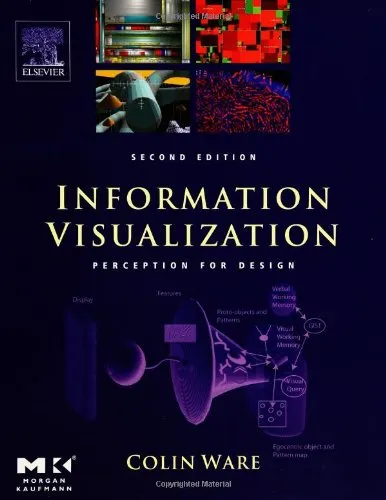


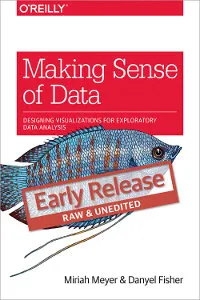



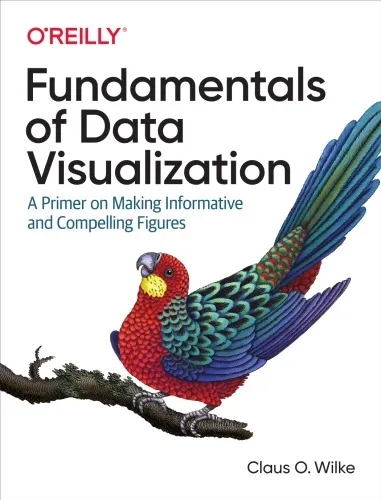

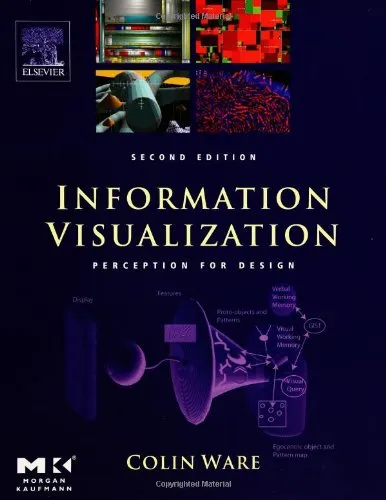
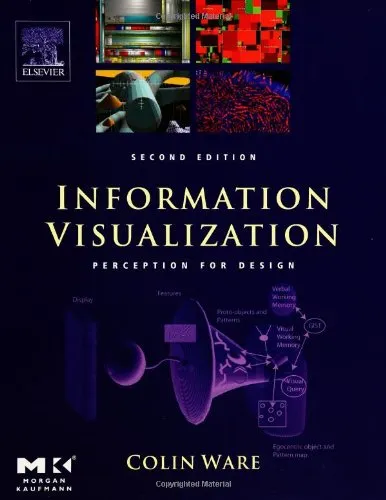
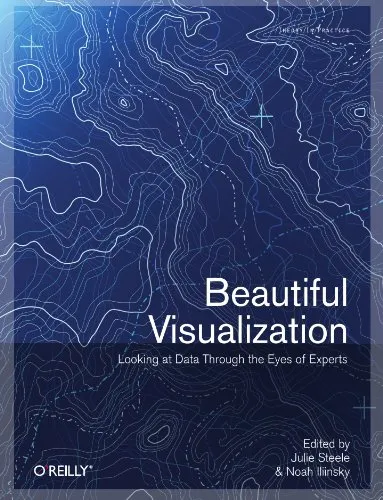
![Good Charts, Updated and Expanded: The HBR Guide to Making Smarter, More Persuasive Data Visualizations [Team-IRA]](https://s3.refhub.ir/images/thumb/Good_Charts__Updated_and_Expanded__The_HBR_Gu_31517.webp)

